Themed collection Celebrating the scientific accomplishments of RSC Fellows

Electrocatalysis of nitrogen pollution: transforming nitrogen waste into high-value chemicals
This viewpoint focuses on electrocatalytic NW reduction and highlights the challenges in its practical application. It also discusses future directions to meet the requirements of upstream and downstream industries by optimizing production processes.

Chem. Soc. Rev., 2024,53, 557-565
https://doi.org/10.1039/D3CS00714F
Synthesis of chiral systems featuring the pyrrole unit: a review
Synthetic strategies towards pyrroles within chiral frameworks are summarised, focussing on reports published 2010–2023.

Chem. Commun., 2024,60, 11385-11414
https://doi.org/10.1039/D4CC03601H
Multifunctional single-component organic molecular materials: ferroelectricity, negative thermal expansion, and polymorphism
The evolution of research on ferroelectricity and unusual thermal expansion properties in organic molecular crystals and their existence in polymorphic forms have been highlighted to pinpoint the importance of such materials in organic electronics.

Mater. Adv., 2024,5, 7495-7515
https://doi.org/10.1039/D4MA00444B
Understanding electrochemical interfaces through comparing experimental and computational charge density–potential curves
A deep understanding of electrode–electrolyte interfaces requires the development of modelling protocols spanning from the local microscale to system-level macroscopic sizes which can be validated by comparison with high-quality experimental results.

Chem. Sci., 2024,15, 6643-6660
https://doi.org/10.1039/D4SC00746H
The pathway to net zero: a chemicals perspective
The global ambition is to reach a net zero waste and emissions society by 2050.

RSC Sustainability, 2024,2, 1337-1349
https://doi.org/10.1039/D3SU00368J
10 Guiding principles for learning in the laboratory
Chem. Educ. Res. Pract., 2024,25, 383-402
https://doi.org/10.1039/D3RP00245D
Chemical Chartographisis: a contemporary perspective in molecular design and synthesis
We introduce a contemporary perspective in molecular design and synthesis, named "Chemical Chartographisis".

Dalton Trans., 2023,52, 18118-18132
https://doi.org/10.1039/D3DT02459H
A perspective on the future of electrochemical ammonia synthesis: aqueous or non-aqueous?
Ammonia (NH3) production by N2 reduction is deemed as a green revolution in the fertilizer industry. The choice of optimal electrolyte is necessary to interpret the actual future of NH3 production i.e. either aqueous or non-aqueous?

J. Mater. Chem. A, 2023,11, 22132-22146
https://doi.org/10.1039/D3TA05136F
Circular economy for perovskite solar cells – drivers, progress and challenges
We examine drivers and benefits of adopting circular economy practices for perovskite solar cells (PSCs), a promising low-cost PV technology, identifying key challenges and reviewing research progress towards achieving a circular economy for PSCs.

Energy Environ. Sci., 2023,16, 3711-3733
https://doi.org/10.1039/D3EE00841J
Unified classification of non-covalent bonds formed by main group elements: a bridge to chemical bonding
Classification of non-covalent bonds in main group elements using the correlation between binding energy and electron density.

Phys. Chem. Chem. Phys., 2023,25, 22583-22594
https://doi.org/10.1039/D3CP00370A
Organic compounds for solid state luminescence enhancement/aggregation induced emission: a theoretical perspective
In this perspective, we discuss some major aspects of the current theoretical understanding of solid-state enhanced luminescence (SLE) and we outline a set of general characteristics that many materials expressing this behaviour share.
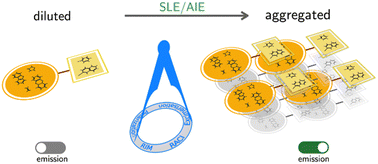
Phys. Chem. Chem. Phys., 2023,25, 17769-17786
https://doi.org/10.1039/D3CP02364H
Molecular photodissociation dynamics revealed by Coulomb explosion imaging
This Perspective illustrates the growing use of ultrafast laser induced Coulomb explosion imaging methods for tracking time-evolving molecular structures and advancing understanding of gas phase molecular fragmentation processes.
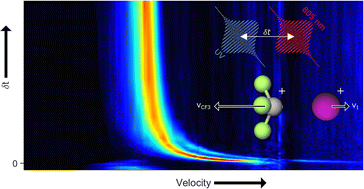
Phys. Chem. Chem. Phys., 2023,25, 16672-16698
https://doi.org/10.1039/D3CP01740K
Progress on smart integrated systems of seawater purification and electrolysis
This review presents the progress and outlook of smart integrated seawater purification and electrolysis systems, which have the potential to circumvent the difficulties associated with direct seawater electrolysis.
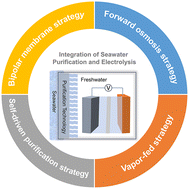
Energy Environ. Sci., 2023,16, 4994-5002
https://doi.org/10.1039/D3EE02712K
Gallium-68-labeled radiopharmaceuticals: a review
This review delves into the realm of gallium-68 (68Ga)-labeled radiopharmaceuticals.

Chem. Soc. Rev., 2025,54, 7421-7483
https://doi.org/10.1039/D5CS00392J
Quantum life science: biological nano quantum sensors, quantum technology-based hyperpolarized MRI/NMR, quantum biology, and quantum biotechnology
The emerging field of quantum life science combines principles from quantum physics and biology to study fundamental life processes at the molecular level.

Chem. Soc. Rev., 2025,54, 3293-3322
https://doi.org/10.1039/D4CS00650J
Electrodegradation of nitrogenous pollutants in sewage: from reaction fundamentals to energy valorization applications
This review provides a comprehensive insight into the electrodegradation processes of nitrogenous pollutants in sewage, highlighting the reaction mechanisms, theoretical descriptors, catalyst design, and energy valorization strategies.

Chem. Soc. Rev., 2024,53, 11908-11966
https://doi.org/10.1039/D4CS00517A
Designed functions of oxide/hydroxide nanosheets via elemental replacement/doping
The replacement of the main components with a small amount of heteroelements in a material affects its properties and imparts novel functions, similar to “wasabi” giving the important taste for “sushi”.

Chem. Soc. Rev., 2024,53, 10523-10574
https://doi.org/10.1039/D4CS00339J
Design and regulation of defective electrocatalysts
This review focuses on the synthesis and characterization of defective electrocatalysts, the internal correlation between defects and catalytic activity, and the development and application of defective electrocatalysts in various catalytic fields.

Chem. Soc. Rev., 2024,53, 10620-10659
https://doi.org/10.1039/D4CS00217B
The dichapetalins and dichapetalin-type compounds: structural diversity, bioactivity, and future research perspectives
This review discusses the structural diversity of the dichapetalins and related compounds from the genera Dichapetalum and Phyllanthus, their manifestation in the diversity of their biological activities, and areas of potential future research.

Nat. Prod. Rep., 2024,41, 1579-1603
https://doi.org/10.1039/D3NP00039G
Biomaterials with cancer cell-specific cytotoxicity: challenges and perspectives
This review covers recent advances in tumour microenvironment-mediated therapies using nanostructured materials, and strategies for creating nanostructures with cancer cell-specific cytotoxicity.

Chem. Soc. Rev., 2024,53, 8847-8877
https://doi.org/10.1039/D4CS00636D
Navigating the landscape of enzyme design: from molecular simulations to machine learning
Efficiently harnessing big data by combining molecular modelling and machine learning accelerates rational enzyme design for its applications in fine chemical synthesis and waste valorization, to address global environmental issues and sustainable development.

Chem. Soc. Rev., 2024,53, 8202-8239
https://doi.org/10.1039/D4CS00196F
Hydrogen oxidation electrocatalysts for anion-exchange membrane fuel cells: activity descriptors, stability regulation, and perspectives
The general principles in terms of reactivity and stability to design efficient electrocatalysts for the alkaline hydrogen oxidation reaction are reviewed. The performance of catalysts in anion-exchange membrane fuel cells is further discussed.

Energy Environ. Sci., 2024,17, 3960-4009
https://doi.org/10.1039/D3EE04251K
Semi-crystalline polymers with supramolecular synergistic interactions: from mechanical toughening to dynamic smart materials
The synergy of supramolecular interactions and covalent polymer chains enables semi-crystalline polymers with enhanced mechanical performance and dynamic adaptivity.

Chem. Sci., 2024,15, 8295-8310
https://doi.org/10.1039/D4SC02089H
Recycling of spent lithium-ion batteries for a sustainable future: recent advancements
A critical review of the recent developments in the recycling of spent Li-ion batteries using five major technologies (direct recycling, pyrometallurgy, hydrometallurgy, bioleaching and electrometallurgy) and evaluation of their sustainability.
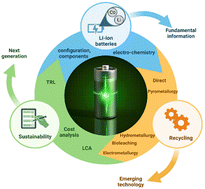
Chem. Soc. Rev., 2024,53, 5552-5592
https://doi.org/10.1039/D3CS00898C
Soft-oxometalates (SOMs): crafting the pillars of a sustainable future
Soft-oxometalates as a tool of chemical science for designing sustainable solutions.
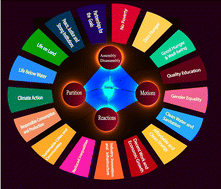
J. Mater. Chem. A, 2024,12, 12945-12959
https://doi.org/10.1039/D3TA07580J
Advances in morphology-controlled alumina and its supported Pd catalysts: synthesis and applications
This review highlights the preparation and regulation strategies of alumina materials from different dimensions and summarizes the preparation, metal–support interaction, and application of Pd/Al2O3 catalysts on important industrial catalysis.

Chem. Soc. Rev., 2024,53, 5014-5053
https://doi.org/10.1039/D3CS00776F
Protein misfolding and amyloid nucleation through liquid–liquid phase separation
Protein misfolding and amyloid aggregation, linked to neurodegenerative diseases, can result from liquid–liquid phase separation (LLPS) and a subsequent liquid-to-solid transition. This represents LLPS as a generic mechanism in amyloid nucleation.
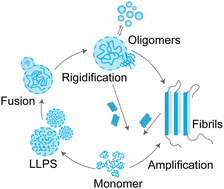
Chem. Soc. Rev., 2024,53, 4976-5013
https://doi.org/10.1039/D3CS01065A
Recent progress and prospects of dimer and multimer acceptors for efficient and stable polymer solar cells
This review summarizes the recent progress, key design principles and prospects of dimer and multimer acceptors for developing polymer solar cells (PSCs) with high efficiency and long-term stability.
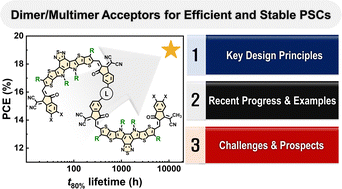
Chem. Soc. Rev., 2024,53, 4674-4706
https://doi.org/10.1039/D3CS00895A
Synthesis of metallic high-entropy alloy nanoparticles
This article reviews the methods for synthesizing high-entropy alloy nanoparticles, which fall into five categories based on their commonality.
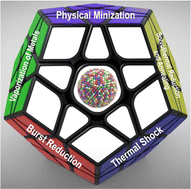
Chem. Soc. Rev., 2024,53, 4400-4433
https://doi.org/10.1039/D3CS00954H
Nanochemistry of gold: from surface engineering to dental healthcare applications
This review provides a comprehensive overview of the latest nanochemistry advancements in the design, synthesis, and utilization of engineered gold nanostructures (GNSs) for dental healthcare applications.
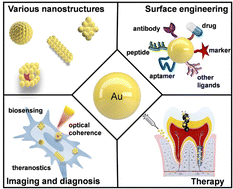
Chem. Soc. Rev., 2024,53, 3656-3686
https://doi.org/10.1039/D3CS00894K
Peptide-based self-assembled monolayers (SAMs): what peptides can do for SAMs and vice versa
Self-assembled monolayers (SAMs) based on peptides represent a reproducible platform for screening and studying peptide functions and facilitating their translation into multidisciplinary applications.

Chem. Soc. Rev., 2024,53, 3714-3773
https://doi.org/10.1039/D3CS00921A
Electrochemical coupling in subnanometer pores/channels for rechargeable batteries
This review categorizes subnanometer pores/channels (SNPCs) from structural perspective and demonstrates electrochemical couplings in SNPCs for batteries while proposing corresponding challenges and future research directions.
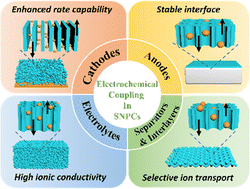
Chem. Soc. Rev., 2024,53, 3829-3895
https://doi.org/10.1039/D3CS01043K
Engineered two-dimensional nanomaterials based diagnostics integrated with internet of medical things (IoMT) for COVID-19
Engineered 2D nanomaterials-based smartphone-assisted detection approaches integrated with IoMT, focusing on reliable, sensitive, and rapid diagnostics for COVID-19.

Chem. Soc. Rev., 2024,53, 3774-3828
https://doi.org/10.1039/D3CS00719G
Emerging polymeric materials for treatment of oral diseases: design strategy towards a unique oral environment
We highlight the recent progress and design strategies of polymeric materials with tailored functions to overcome the highly movable and wet, microbial and inflammatory environment in the oral cavity for treatment of oral diseases.

Chem. Soc. Rev., 2024,53, 3273-3301
https://doi.org/10.1039/D3CS01039B
Sixty years of electrochemical optical spectroscopy: a retrospective
After sixty years of development, electrochemical optical spectroscopy has evolved from the early phase of proof-of-concept to an advanced phase with various spectroscopic modes and has contributed significantly to the field of electrochemistry.

Chem. Soc. Rev., 2024,53, 3579-3605
https://doi.org/10.1039/D3CS00734K
Towards high performance and durable soft tactile actuators
This review assesses diverse strategies to enhance the actuation performance and durability of soft tactile actuators, enabling optimal functionality in real-world conditions.

Chem. Soc. Rev., 2024,53, 3485-3535
https://doi.org/10.1039/D3CS01017A
Recent advances in super-resolution optical imaging based on aggregation-induced emission
From aggregation-induced emission to super-resolution imaging: the significance of reversible dynamic interaction.
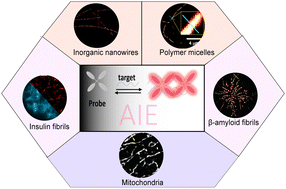
Chem. Soc. Rev., 2024,53, 3350-3383
https://doi.org/10.1039/D3CS00698K
Intracellular microbial rhodopsin-based optogenetics to control metabolism and cell signaling
Organelle optogenetics is an approach to control cell physiology by targeted expression of microbial rhodopsins in membranes of subcellular organelles.
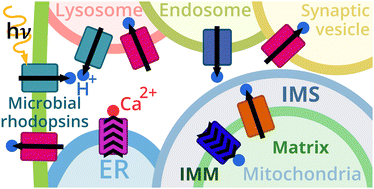
Chem. Soc. Rev., 2024,53, 3327-3349
https://doi.org/10.1039/D3CS00699A
Dilute polyelectrolyte solutions: recent progress and open questions
We highlight key results and outstanding questions emerging from recent literature, aiming to provide readers with a comprehensive overview of the latest advancements in understanding the conformation and dynamics of polyelectrolytes in dilute solutions.

Soft Matter, 2024,20, 2635-2687
https://doi.org/10.1039/D3SM00468F
Plasmonic silver and gold nanoparticles: shape- and structure-modulated plasmonic functionality for point-of-caring sensing, bio-imaging and medical therapy
Silver and gold nanoparticles have found extensive biomedical applications due to their strong localized surface plasmon resonance (LSPR) and intriguing plasmonic properties.

Chem. Soc. Rev., 2024,53, 2932-2971
https://doi.org/10.1039/D3CS00793F
(Poly)phenol-related gut metabotypes and human health: an update
(Poly)phenol metabotyping as a tool for tailored nutrition advice. Created with https://BioRender.com.
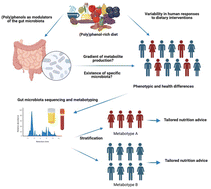
Food Funct., 2024,15, 2814-2835
https://doi.org/10.1039/D3FO04338J
Endohedral metallofullerene molecular nanomagnets
This review summarizes the significant advances in endohedral metallofullerene-based molecular nanomagnets, with a particular emphasis on their unique structures and intriguing magnetic properties arising from such structural peculiarity.
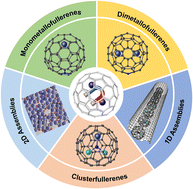
Chem. Soc. Rev., 2024,53, 2863-2897
https://doi.org/10.1039/D3CS00991B
Nanomaterials for light-mediated therapeutics in deep tissue
Different activation modes, including chemiluminescence, NIR, X-ray and ultrasound, have been employed to trigger specific light-mediated therapeutics, such as photodynamic therapy, photothermal therapy and drug delivery.

Chem. Soc. Rev., 2024,53, 2898-2931
https://doi.org/10.1039/D3CS00862B
Sialic acids in infection and their potential use in detection and protection against pathogens
An overview of sialic acid involvement in infection and exploitation in diagnostics and therapeutics.

RSC Chem. Biol., 2024,5, 167-188
https://doi.org/10.1039/D3CB00155E
Shelf life of lithium–sulfur batteries under lean electrolytes: status and challenges
Recent advances in prolonging the shelf life of LSBs are summarized. Furthermore, the challenges of current strategies, and research prospects for LSBs with high performance and sustained shelf life under lean electrolytes are proposed.
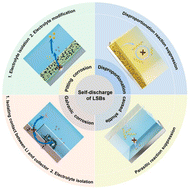
Energy Environ. Sci., 2024,17, 1695-1724
https://doi.org/10.1039/D3EE04358D
The emerging chemistry of self-electrified water interfaces
Every real material system on the Earth's surface is a mosaic of electric charges supporting unexpected chemical reactions and electricity.

Chem. Soc. Rev., 2024,53, 2578-2602
https://doi.org/10.1039/D3CS00763D
Progress and perspectives of Pd-based catalysts for direct synthesis of hydrogen peroxide
In this work, the theoretical basis, catalyst design and in situ application of DSHP are comprehensively summarized. It has certain guiding significance for the design of future catalysts.
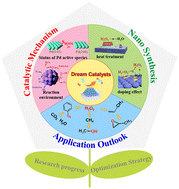
Ind. Chem. Mater., 2024,2, 7-29
https://doi.org/10.1039/D3IM00054K
The allure of targets for novel drugs
There's no single way to find new drugs; multiple targets for new medicines are effective and encourage innovation.

RSC Med. Chem., 2024,15, 472-484
https://doi.org/10.1039/D3MD00621B
Discovery, synthesis, activities, structure–activity relationships, and clinical development of combretastatins and analogs as anticancer drugs. A comprehensive review
This comprehensive review describes discovery, synthesis, structure activity relationship, and anticancer activity of six series of 22 natural products as well as clinical studies of several candidates.
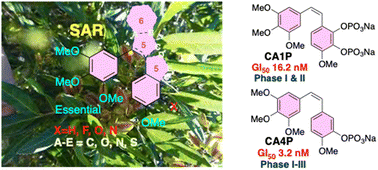
Nat. Prod. Rep., 2024,41, 298-322
https://doi.org/10.1039/D3NP00053B
Breaking the bottleneck of lead-free perovskite solar cells through dimensionality modulation
Leveraging the dimensionality-modulation method to further boost the device efficiency and stability is the future roadmap for the development of lead-free perovskite solar cells.

Chem. Soc. Rev., 2024,53, 1769-1788
https://doi.org/10.1039/D3CS00728F
What can molecular assembly learn from catalysed assembly in living organisms?
We discuss how living organisms utilize the catalysed assembly (catassembly) way to construct and control complex assembly systems with high efficiency and selectivity, and how we can harness catassembly to design functional molecular assemblies.

Chem. Soc. Rev., 2024,53, 1892-1914
https://doi.org/10.1039/D3CS00634D
Glycan-specific molecularly imprinted polymers towards cancer diagnostics: merits, applications, and future perspectives
This review surveys glycans as biomarkers and challenges in using glycan-binding receptors for cancer diagnosis. We highlight merits, applications, and future directions of using molecularly imprinted polymers as effective glycan-binding receptors.
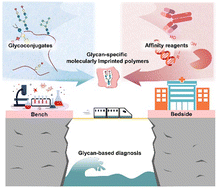
Chem. Soc. Rev., 2024,53, 1870-1891
https://doi.org/10.1039/D3CS00842H
Pd-Catalysed asymmetric allylic alkylation of heterocycles: a user's guide
This review analyses recent advances and strategies employed in the Pd-AAA of nucleophilic prochiral heterocycles. Each section is focused on a specific heterocycle, where optimisation data and reaction scope have been carefully analysed.
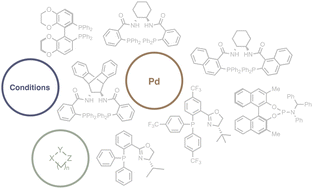
Chem. Soc. Rev., 2024,53, 1936-1983
https://doi.org/10.1039/D3CS00856H
Recent advances in two-dimensional polymers: synthesis, assembly and energy-related applications
This review summarizes the advancements of 2D polymers and highlights their unique advantages, focusing on their recent research progress in the design, synthesis, assembly and processing, as well as their energy-related applications.

Chem. Soc. Rev., 2024,53, 1823-1869
https://doi.org/10.1039/D3CS00782K
Therapeutic synthetic and natural materials for immunoengineering
This review discusses the balance of inflammation in immunity and biomaterials strategies to modulate immunity in cases of imbalance such as autoimmune disease, infection, and cancer. Adapted from “Balanced Energy State”, by BioRender.com (2023).

Chem. Soc. Rev., 2024,53, 1789-1822
https://doi.org/10.1039/D3CS00805C
Recent advances using MXenes in biomedical applications
The structure of this review includes applications of MXenes in drug delivery, tissue engineering, antimicrobial, and in biosensors.

Mater. Horiz., 2024,11, 876-902
https://doi.org/10.1039/D3MH01588B
Low-dimensional nanostructures for monolithic 3D-integrated flexible and stretchable electronics
Low-dimensional nanostructures, with their small size, unique characteristics, flexible/elastic adaptability, and effective vertical stacking capability, play a crucial role in advancing monolithic 3D-integrated flexible/stretchable systems.
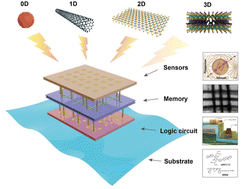
Chem. Soc. Rev., 2024,53, 1316-1353
https://doi.org/10.1039/D3CS00918A
Multiple hydrogen bonding driven supramolecular architectures and their biomedical applications
Multiple hydrogen bonding driven supramolecular architectures and their biomedical applications.
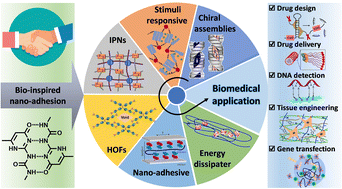
Chem. Soc. Rev., 2024,53, 1592-1623
https://doi.org/10.1039/D3CS00705G
Urea catalytic oxidation for energy and environmental applications
This review evaluates state-of-the-art advances in electrocatalytic and photo(electro)catalytic urea oxidation from fundamentals and materials to energy and environmental applications.

Chem. Soc. Rev., 2024,53, 1552-1591
https://doi.org/10.1039/D3CS00963G
Protein-based bioactive coatings: from nanoarchitectonics to applications
Assembly strategy and application direction of protein-based bioactive coatings.

Chem. Soc. Rev., 2024,53, 1514-1551
https://doi.org/10.1039/D3CS00786C
Crystalline porous organic salts
CPOSs, formed through self-assembly of organic acids and organic bases, are gradually evolving into a field full of opportunities and challenges.

Chem. Soc. Rev., 2024,53, 1495-1513
https://doi.org/10.1039/D3CS00855J
Engineering organic polymers as emerging sustainable materials for powerful electrocatalysts
A comprehensive overview on organic polymers as electrocatalysts is summarized. By presenting the engineering strategies, insightful understandings, challenges, and perspectives, we hope this review can provide valuable references for the readers.
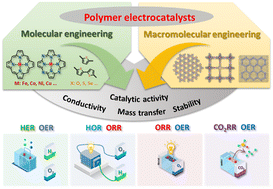
Chem. Soc. Rev., 2024,53, 1447-1494
https://doi.org/10.1039/D3CS00727H
The synthesis and application of crystalline–amorphous hybrid materials
This review summarizes the typical synthetic methodologies of crystalline–amorphous hybrid materials and highlights their enhanced performance for multiple applications.

Chem. Soc. Rev., 2024,53, 684-713
https://doi.org/10.1039/D3CS00860F
Bio-based hyperbranched epoxy resins: synthesis and recycling
This review provides a comprehensive overview of the synthesis, degradation, and recycling of bio-based hyperbranched epoxy resins.
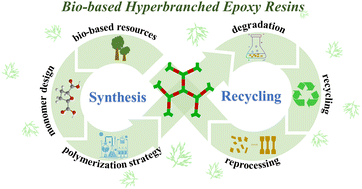
Chem. Soc. Rev., 2024,53, 624-655
https://doi.org/10.1039/D3CS00713H
Rare earth oxide based electrocatalysts: synthesis, properties and applications
The synthesis, properties and applications of rare earth oxide based electrocatalysts in electrocatalysis reactions.
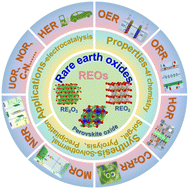
Chem. Soc. Rev., 2024,53, 714-763
https://doi.org/10.1039/D3CS00708A
Organic chiral nano- and microfilaments: types, formation, and template applications
Chiral filaments are omnipresent in nature and our daily lives. This review gives an overview of nano- and microfilaments, delineates formation modes based on the concept of intra- or interlayer misfits, and shows examples of template applications.

Mater. Horiz., 2024,11, 316-340
https://doi.org/10.1039/D3MH01390A
Metal nitrides for seawater electrolysis
The current strategies and basic mechanisms of metal nitrides for hydrogen production from seawater are reviewed.

Chem. Soc. Rev., 2024,53, 163-203
https://doi.org/10.1039/D3CS00717K
Atomic-level design of metalloenzyme-like active pockets in metal–organic frameworks for bioinspired catalysis
This review systematically summarizes the significant advances in MOF-based metalloenzyme mimics for bioinspired catalysis with a special emphasis on active pocket engineering at the atomic level.
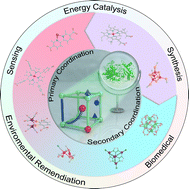
Chem. Soc. Rev., 2024,53, 137-162
https://doi.org/10.1039/D3CS00767G
f-Element heavy pnictogen chemistry
In this review, the molecular chemistry of the f-elements with heavy pnictogen ligands from phosphorus to bismuth is described.
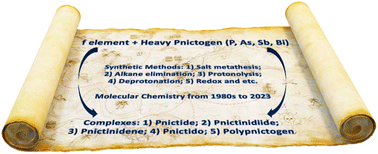
Chem. Sci., 2024,15, 13-45
https://doi.org/10.1039/D3SC05056D
Biogenic synthesis of novel nanomaterials and their applications
Synthesis of nanoparticles of different shapes and sizes using biological precursors and their applications.

Nanoscale, 2023,15, 19423-19447
https://doi.org/10.1039/D3NR03843B
About this collection
Chemistry, and scientists using chemistry to solve global challenges, enriches our world. The RSC, as a learned society with a truly international membership and journal portfolio, is in a unique position to support chemistry achieve its full potential to drive global change through facilitating international collaboration and knowledge dissemination. But where does the future lie?
This growing collection highlights the scientific accomplishments of RSC Fellows and features cutting-edge developments and future prospects across our journals portfolio.
Are you ready to take your journey in the world of chemistry to new heights? From teachers sparking curiosity in young minds to leading researchers driving innovation, becoming a part of our vibrant and diverse community of over 50,000 passionate individuals gives you the tools you need to shape your career –
discover membership information today.